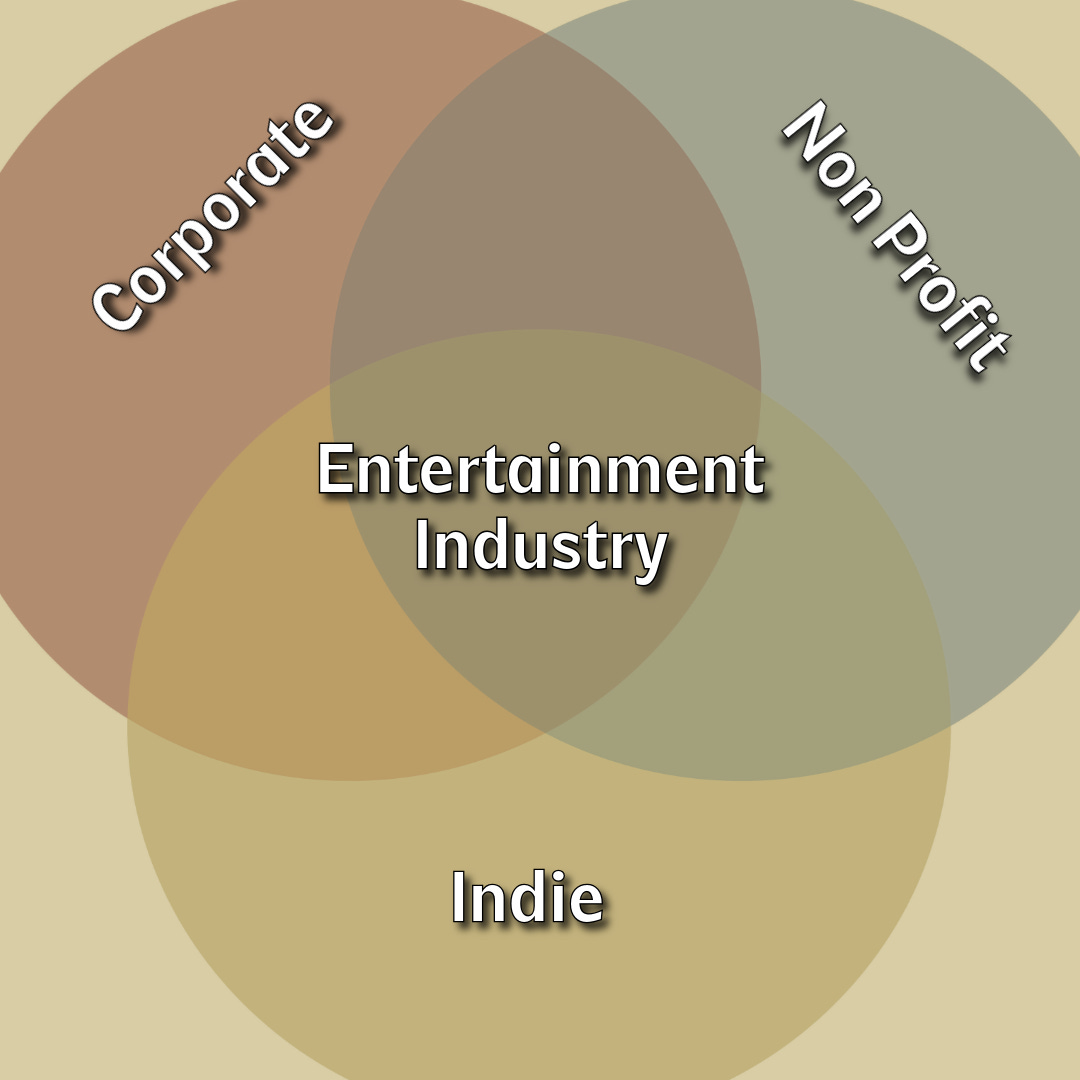What I Learned About Showbiz From a Job I Never Should Have Taken
🌟Career Coaching: How a brief stint in pharmaceutical media taught me that the entertainment industry is bigger—and weirder—than I ever imagined.
When I first moved to New York, I would have taken any job with CBS. And I did.
I became an editorial assistant for a division of CBS (before its Viacom and Paramount shuffles) called Transmedica. If you’ve never heard of it, don’t worry, neither had I. Its purpose was to connect pharmaceutical companies with doctors through swanky “symposia” and medical journals. The role came with a badge of legitimacy, a decent paycheck and a comfy bullpen desk.
I tried to convince myself it was a foot in the door and the first step toward my goal of living a glamorous life and making cool stuff. But nothing kills artistic hope faster than reading thirty pages about myocardial infarction and realizing you don’t care if a heart ever beats again. I was out of my depth and bored out of my mind.
Then one day, a man in a suit walked in and announced—just like that—that the division no longer existed. Everyone was let go. And even though I hated the job, it was an unnecessarily rude introduction to corporate America.
Luckily, this strange detour had delivered a valuable career lesson: the entertainment industry isn’t a one-size-fits-all enterprise. It’s a galaxy of wildly different worlds.
One Industry, Many Ecosystems
Most people outside the business think “entertainment” means movies, TV, Broadway. West End. Maybe podcasts. Maybe YouTube.
That just scratches the surface. The industry also encompasses media, music, theme parks, sports, gaming, gambling and more. It’s anything that is created to engage an audience.
If you’re trying to break in or you’re looking to pivot, it’s helpful to think about the industry’s three major ecosystems and the different cultures that each one spawns. (Mind you, I’m using broad strokes here because this is a blog and not a book. There are sub-sectors, there are hybrids, and the industry is constantly evolving.)
1. Corporate/Commercial Entertainment
This is what most people imagine when they dream of “making it”: studios, streamers, reality tv, ad and talent agencies, Broadway. The priorities here are scale, speed and, especially, profit. You're working within a large machine where the content needs to please executives, shareholders and a massive audience.
Success here often depends on being highly specialized, navigating hierarchies with finesse and aligning your output with broader business goals. Success here may also come with geographical demands like living in NYC or LA. It can be exhilarating. It can also be creatively stifling.
2. Nonprofit and Public Media
Here you find most regional and institutional theaters, museums, public radio and public television, arts education programs and cultural institutions. These entities are mission-driven and usually funded by charitable contributions and, in many countries (not so much the USA right now), the government. Instead of box office receipts or ad impressions, they’re accountable to boards, donors and the audiences or communities they serve.
To make a huge, sweeping generalization, creatives in this world tend to be more collaborative and socially conscious. You may wear more hats and earn less money, but you often gain more autonomy and impact. It’s a slower burn, and usually a values-driven one.
3. Independent and Experimental Work
This is the scrappier, DIY realm where a web series filmed in your cousin’s garage can end up in a major festival. This is where you find most indie film, immersive theater, experimental games and TikTok stars building their own audience from scratch.
Here, you are your own infrastructure. You write the grants and find the investors. You design the poster. You beg the venue for space and the camera house for lower rates. Or maybe you are a director or crew member who goes from one indie gig to another.
Working in this realm can be financially stressful, because you don’t always know when the next project will come along and many of them are low budget. But on the upside, you usually get to make what you actually believe in, with the people you trust.
This world demands resourcefulness, clarity of vision and a lot of caffeine. But it’s where I’ve seen the most innovation and the deepest sense of ownership.
Where Do You Fit?
When you’re just starting out—or shifting gears—it’s easy to think there’s a “right” path. But that idea is leftover from a time when gatekeepers held all the keys. The truth is, the path is yours to draw.
Some people thrive on a studio lot. Others suffocate. Some need the mission of a nonprofit to fuel their work. Others want the creative control that only indie projects allow.
And most of us? We float between these worlds.
You might take a Broadway contract or a corporate gig because you need the health insurance. Or because you want to pay off debt. Or because, frankly, you want to breathe for a minute. There is no shame in that. In fact, that’s sound strategy.
I’ve known artists who fund their indie films with day jobs in corporate production. I’ve seen nonprofit producers take on commercial theater runs to build stability and then circle back to passion projects. It’s not selling out. It’s surviving smart.
The key is to understand which ecosystem you're operating in and what it can or can’t offer you.
So instead of asking, “How do I break into the industry?”, try asking:
What kinds of stories do I care about?
Who do I want to reach?
How do I want to spend my days?
Let your answers guide you toward the ecosystem that fits your values and your needs.
That Transmedica job didn’t last. (Whew!) But I’m grateful for it now because it taught me how vast the industry is. And that not every opportunity is meant for me or for you, even when the employer is one your parents would be impressed by.
If you’re just beginning, or reinventing, know that there’s plenty of room for you in the entertainment industry. But you don’t have to squeeze into a version of the business that doesn’t make sense for who you are.
Find your niche. Explore the ecosystems. And don’t be afraid to walk away from a job that doesn’t mesh with your goals.
Even if it’s at CBS.






